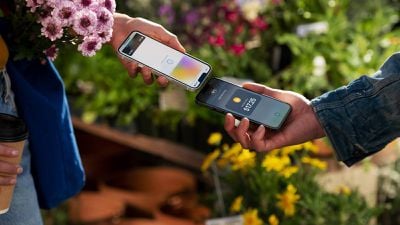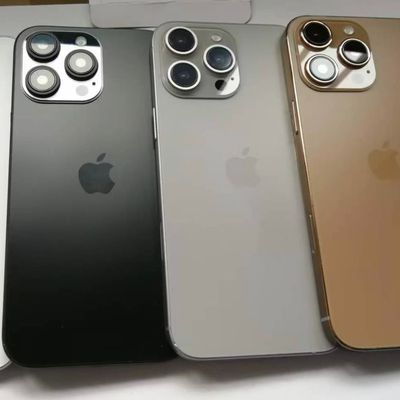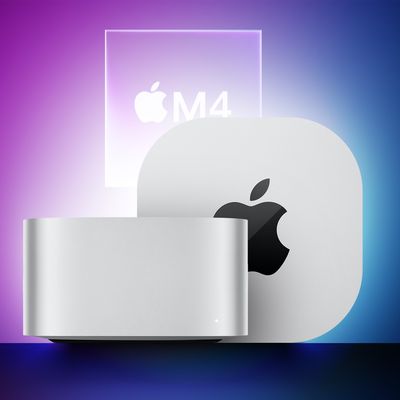EU to Accuse Apple of Unfairly Blocking Third-Party Access to NFC Payment Technology on iPhone
Apple will be accused of breaking EU law by unfairly limiting access of its mobile payment system on iPhone to third-party service providers, such as PayPal and Venmo, according to the Financial Times, citing sources familiar with the matter.

According to the report, Apple will be accused of "unfairly blocking groups such as PayPal and leading banks from accessing its mobile wallet system" by the European Union and could face heavy penalties if the accusation moves forward. In specific, the EU is taking issue with Apple's restriction of NFC technology on the iPhone, which Apple does not allow third-party app developers to access.
By limiting access to the NFC chip, services such as PayPal, Venmo, banks, and other financial providers, are unable to provide a similar experience to that of Apple Pay for iPhone users. Apple claims that its restrictions on NFC are in place as a safeguard for user privacy and security.
The new development from the EU comes as Apple faces increasing pressure to open its iPhone to third-party app stores and possibly make iMessage a cross-platform messaging service. New details this week of the "Digital Services Act" soon planned to make its way through the European Parliament and the European Council could force Apple to open its iPhones to other app stores and sideloading, a move that CEO Tim Cook warns would fundamentally change the iPhone.
Popular Stories
Leaker Sonny Dickson is back today with a new dummy unit image showing all four iPhone 16 Pro color variants, including the rose gold or "bronze" unit that replaces Blue Titanium in the existing iPhone 15 Pro models. The iPhone 16 Pro models are expected to come in black, white or silver, gray or "Natural Titanium," and a rose or rose gold color replacing Blue Titanium, according to Apple...
Multiple rumors have suggested that the iPhone 16 models are going to have an all-new button that's designed to make it easier to capture photos when the devices are held in landscape mode. Apple calls the button the Capture Button internally, and it is going to be one of the most advanced buttons that's been introduced to date with support for multiple gestures and the ability to respond to ...
Apple typically releases its new iPhone series in the fall, and a possible September 10 announcement date has been floated this year, which means we are just one month away from the launch of the iPhone 16. Like the iPhone 15 series, this year's lineup is expected to stick with four models – iPhone 16, iPhone 16 Plus, iPhone 16 Pro, and iPhone 16 Pro Max – although there are plenty of design...
Apple's iPhone 16 series is expected to debut in September 2024. This release follows Apple's trend of introducing new iPhone models annually in the fall. While the exact date has yet to be officially confirmed, the day of Tuesday, September 10 has been rumored as a possible announcement date, and September has traditionally been the month when Apple unveils its latest smartphone innovations. ...
Apple is moving forward with its project to develop a tabletop robotic device, according to Bloomberg's Mark Gurman. Subscribe to the MacRumors YouTube channel for more videos. The device would feature a large iPad-like display mounted on a "thin robotic arm" that would allow the display to tilt and up and down and rotate a full 360º, and it would serve as a "smart home command center," a...
It's almost September, but Apple still has multiple new product launches planned for 2024. New iPhone 16 models and Apple Watches are coming in September, and we're also going to get at least three Mac updates with M4 chips this year, according to rumors. Here's what's on the horizon. MacBook Pro Apple plans to refresh both the 14-inch and 16-inch MacBook Pro models, adding M4 chips. The ...
T-Mobile was fined $60 million by the Committee on Foreign Investment in the US (CFIUS) for negligence surrounding data breaches, reports Reuters. CFIUS penalized T-Mobile for failing to prevent or disclose unauthorized access to sensitive customer data. When T-Mobile merged with Sprint, it signed a national security agreement with CFIUS, which is what led to the fine earlier this year....





















